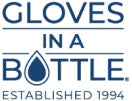
Can Eczema Be Treated With Vitamins and Nutrients?
Share
Ok, so you’ve been lathering your hands in ointment and sporting your fashion-icon-worthy eczema gloves overnight and still, your eczema doesn't seem to be getting any better. You’ve been told many times that there’s no cure for eczema and that different treatments will work differently for every person. You might be extra careful about what comes near your skin so that you don’t make your eczema flare-ups worse but are you also thinking about tackling eczema from the inside? What is going on inside your body that could be causing your eczema to act up? Can eczema be treated with vitamins and nutrients?
Vitamin B and Eczema
We’ve already talked about the role that vitamin B can play when it comes to fighting your symptoms of eczema. If you notice some other symptoms you’re experiencing like insomnia, headaches or stomach pain, for example, having more of certain B vitamins could actually help your eczema. Remember, it’s not always just about your skin on the outside. If you’re not getting the right vitamins or nutrients, this could be part of the reason why you’re getting that red, itchy and uncomfortable skin. But hold off before you start making a multivitamin your side dish with every meal. Let’s look at what other vitamins and nutrients could help you with your eczema.
Vitamins and Nutrients That Can Help With Eczema
Vitamin D: Because it may help to reduce inflammation and support your immune system, increasing the amount of vitamin D you get could help with your eczema since, after all, eczema is an inflammatory skin response.1,2 The easiest way to get more vitamin D is to make sure you get enough sunlight (which, I know can be tricky in the winter) but make sure to always protect your skin from UV rays.
Vitamin E: This vitamin is a great antioxidant, helping to protect your body. In some studies they have found that an increase of vitamin E meant a lower level of certain antibodies for people with eczema.1,2 We might think that having antibodies is a good thing, but if you have too many it could be a sign that you’re having an allergic reaction which is definitely something you want to avoid as it can cause eczema flare-ups. You can get vitamin E from plant oils, avocados and nuts and seeds so start sprinkling those almonds on your breakfast cereal.
Omega-3 fatty acids: Okay, so technically not a vitamin but definitely something our body needs. Omega-3 fatty acids is a long-chain fatty acids (don’t worry about the science bit) but what’s important to know is that one of the things it does for our body is help with normal skin function.2 If you have eczema, your skin is obviously not functioning as it should so having enough omega-3 could help. You can get it by eating oily fish 3 times a week, which for some might not be a delicious option so luckily it comes in supplements too. A study found that increasing your fish oil intake for at least 12 weeks could really help to improve eczema skin conditions.4
Flavonoids: Flavo-what? Flavonoids are molecules or compounds that are found in fruits and vegetables. Before I tell you what they do, let me tell you that they are also found in wine, tea and chocolate so hopefully I have your attention now! Some studies have shown that flavonoids can help to rebalance our immune system and have been helpful for people suffering from eczema.1 For one, they can help reduce the release of histamine and help your body fight infection.1 They are also an anti-inflammatory and an effective antioxidant3 so start loading up on those fruits and vegetables – but go easy on the wine.
Look At Your Diet and Not Just Your Skin
It goes without saying that if you are making any drastic changes to your diet, always talk to a doctor first to make sure what you’re doing is right for you. While you’re trying to figure out if what you’re putting into your body can help fight off your eczema, make sure you are still taking care of your skin from the outside. Using a shielding lotion like Gloves In A Bottle can help to soothe and heal your current eczema flare-up while protecting your skin from future eczema episodes.
So, can eczema be treated with vitamins and nutrients? There isn’t a one-size-fits-all answer to this but one thing’s for sure - being more aware of what is going into your body will always be beneficial to your health. Before you start cutting out all the foods you think you shouldn’t be eating, remember that there just might be a very good reason to keep some extra chocolate around!
1 https://www.nuffieldhealth.com/article/eczema-5-ways-changing-your-diet-could-help
2 https://www.verywellhealth.com/what-to-eat-when-you-have-eczema-4692428
2 https://www.healthline.com/health/what-are-flavonoids-everything-you-need-to-know
4 https://www.livestrong.com/article/345223-vitamins-supplements-for-eczema/
